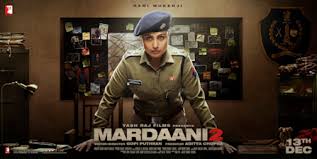
Rani Mukerji Birth Date is 21 March 1978, is an Indian film actress. The winner of too many awards as seven Filmfare Awards, her roles have been mention in the media as a significant leaving from previous screen portrayals of Indian women. Rani is listed in listings of the most popular & highest-paid Bollywood film actresses of the 2000s.
Rani Mukerji was born into the Mukherjee-Samarth family, in which her parents and relatives were members of the Indian film industry, she initially not interested in acting career in movie industry. As a teenager she imerse with acting by starring in her father’s Bengali-language first debut film Biyer Phool and in the social drama first Hindi film Raja Ki Aayegi Baraat (both 1996).
Rani Mukerji give her first commercial success with the action movie Ghulam (1998) with Aamir Khan and breakthrough with the romance Kuch Kuch Hota Hai (1998). Following a few flop movie, the year 2002 marked a turning point for her when she was cast by Yash Raj Films as the star of the drama Saathiya. Few comedy movie with Govinda is also moderate sucess.
Rani strengthen her Bollywood career starring in several commercially successful romantic films, like Chalte Chalte (2003), Hum Tum (2004), Veer-Zaara (2004), and Kabhi Alvida Naa Kehna (2006), and the crime comedy Bunty Aur Babli (2005) with Abhishek. She also appreciated for playing an abused wife in the political thriller Yuva (2004) and a deaf and blind woman in the drama Black (2005). Rani then working with Yash Raj Films on several flop films which led critics to deplore her choice of roles.
After few flop movie, she get success when she played a strong-willed journalist in the thriller No One Killed Jessica (2011), and further success start for her starring roles in the thrillers Talaash: The Answer Lies Within (2012), Mardaani (2014) and its sequel Mardaani 2 (2019), and the comedy-drama Hichki (2018). Mardaani 2 (2019) movie is emerged as her highest-grossing release.
Rani is involved in social activity- causes and is raise voice about issues faced by women and children. She has participated in concert tours and stage shows, and stareed as a judge for the 2009 reality show Dance Premier League. Introverted to discuss her personal life in the media, Rani is married to Bollywood leading producer Aditya Chopra, with whom she has a daughter.
- Rani Mukerji Birth Date : 21 March 1978 (age 42)
- Birth Place : Bombay, Maharashtra, India
- Other names : Rani Mukherjee,Rani Mukherji
- Star Sign : Aries
- Alma mater : SNDT Women’s University
- Occupation : Actress
- Years active : 1996–present
- Husband Name : Aditya Chopra
- Children : 1 – Adira Chopra
- Parents Name : Ram Mukherjee (father) and Krishna Mukherjee(Mother)
- Awards : Winner of National and Filmfare and Other Bollywood all leading Best actress and Best Supporting actress winner.
- Nationality : Indian
- Religion : Hinduism
- Debut Movie : Raja Ki Aayegi Baraat -1997
- Height : 160cm / 1.60m
- Weight : 58kg (Kilograms) / 127lbs (Pounds)
- Figure : 34-30-34
Rani Mukerji Childhood and Early Career :
Rani was born in Mumbai on 21 March 1978. Her father, Ram Mukherjee, is a former film director and one of the founders of Filmalaya Studios. Her mother, Krishna Mukherjee, is a former playback singer. Her elder brother, Raja Mukherjee, is a film producer and director. Her maternal aunt, Debashree Roy, is a Bengali film actress and her paternal cousin, Kajol, is a Hindi film actress and her contemporary work together in movie like Kuch Kuch Hota Hai. Another paternal cousin, Ayan Mukerji, is a scriptwriter and film director. Despite her parents and most of her relatives being members of the Indian film industry, Rani earlier was not interested in making a career in movie industry. She said, “There were already too many actresses at home and I wanted to be someone different”.
Rani gets her education at Maneckji Cooper High School in Juhu and graduated with a degree in Home Science from SNDT Women’s University. She is a trained Odissi dancer and started learning the dance form while in the tenth grade. As part of an annual tradition, the Rani family celebrates the festival of Durga Puja in the suburban neighbourhood of Santacruz every year. Rani as a Religion is a Hindu family, takes part in the festivities with her entire family.
In 1994, director Salim Khan contact Rani to play the main actress role in his directorial, Aa Gale Lag Jaa. Her father disapproved of a full-time career in film at such a young age, so she rejected the offer. At age 18, Rani experimented with acting by playing a supporting role in her father’s Bengali film Biyer Phool (1996). The film starred Prosenjit and Indrani Haldarand narrates the story of two sisters; Rani played the younger sibling of Haldar’s character.

Soon after, Salim Khan contacted her with another movie offer to play the main actress role in the social drama Raja Ki Aayegi Baraat, after Mamta Kulkarni refused the offer. Rani accepted the role due to her mother’s demanded that she continue to pursue acting on an experimental basis. Before she started work on it, Rani learned acting at Roshan Taneja’s acting institute. She portrayed a rape victim who is forced to marry her rapist in Raja Ki Aayegi Baraat, which also released in 1996. Although the film was a commercial unsuccessful, Rani’s performance gained her a special acknowledgement trophy at the annual Screen Awards ceremony. After the film’s poor showing at the box office, Rani shifted to college to complete her education. During that time, Kajol’s success inspired her in Bollywood, she decided to follow a full-time career in films.
Acting Career : New Starts :
In 1998, Rani cast with Aamir Khan in Vikram Bhatt’s action movie Ghulam (1998), her first Box office success but her role in the film was small, the song “Aati Kya Khandala” gained her public recognition. Due to Rani’s heavy voice, Mahesh Bhatt had decided to someone with a higher pitched voice dub her lines; Rani said that it was done as her voice “did not suit the character”. During that time, Karan Johar featured her with Shah Rukh Khan & Kajol in his directorial first film Kuch Kuch Hota Hai. The role was originally written for Twinkle Khanna, but when she and several other leading actress rejected it, Karan finalized Rani on the request of Shah Rukh and the filmmaker Aditya Chopra. She played Sah Rukh’s character’s love interest and later wife, who dies after giving birth to their daughter. Karan had originally intended to dub Mukerji’s voice, but she improved her diction and eventually provided her own voice. Reviewing the film for India Today, Nandita Chowdhury wrote that it was “the gorgeous Rani who steals the show. Oozing oomph from every pore, she also proves herself an actress whose time has come”. Kuch Kuch Hota Hai proved a breakthrough for Rani; it had earnings of over 1.03 billion rs to emerge as the year’s top-grossing Hindi film, and won eight Filmfare Awards, including Best Supporting Actress for Rani. After this, she had starring roles in Mehndi (1998) and Hello Brother (1999), critical and commercial disaster that failed to move her career forward.
In the Year 2000, Rani wanted to avoid similar kind male centric as a “standard Hindi film heroine” and thus decided to portray more challenging roles in addition to the prototypal glamorous lead. In Badal and Bichhoo, two male-centric action dramas with Bobby Deol, she played roles that were met with little acclaim from critics.
A supporting role in Kamal Haasan’s bilingual film Hey Ram proved more rewarding. The film was a partly fictionalised account of Mahatma Gandhi’s assassination and Rani played a Bengali school teacher who is raped and murdered during communal riots in Calcutta. Having only portrayed glamorous roles thus far, she was challenged by Kamla’s insistence on realism and to appear on screen without wearing make-up; she believed that the experience changed her approach to acting.
The controversial subject matter of Hey Ram led to poor box office earnings, but the film was critically acclaimed and selected as India’s official entry to the Oscars. After starring in the romantic comedies with Govinda Hadh Kar Di Aapne and Kahin Pyaar Na Ho Jaaye which average at Box office, Rani starred alongside Salman Khan and Preity Zinta in the romantic comedy Har Dil Jo Pyar Karega, which earned her a Best Supporting Actress nomination at Filmfare. Padmaraj Nair of Screen found her role to be “too inadequate for her to prove herself” but added that “she is quite adequate in whatever scenes she has been given”.
Rani’s first film of 2001, Chori Chori Chupke Chupke, was released after controversy over the film’s funding by the Mumbai underworld delayed it by a few months. The film was based on surrogacy and marked her second time with Salman Khan and Preity. Film critic Sukanya Verma noted Rani to be “handicapped with a role that doesn’t give her much scope besides weeping and sobbing” and preferred the “meatier” role of Preity. In Bas Itna Sa Khwaab Hai and Nayak: The Real Hero,movies that failed to gain a Box office success, Rani played the love interests of Abhishek Bachchan and Anil Kapoor respectively. In a review for the latter film, Sarita Tanwar of Rediff.com deplored that she had “very little to do except being part of some magnificently picturised songs”. An article in Mint summarised that a majority of her roles after Kuch Kuch Hota Hai were “inconsequential”.
Rani started working with mainly Yash Raj Films in 2002, when the company cast her in two high-profile productions: Mujhse Dosti Karoge!, a romantic comedy Opposite Hrithik Roshan & Kareena Kapoor, and Saathiya, a remake of the Tamil romance Alaipayuthey. Mujhse Dosti Karoge! Box office failure, But The romantic drama Saathiya, however, proved a turning point in her career, winning her the Filmfare Critics Award for Best Actress in addition to a Best Actress nomination at the same ceremony. Other two Comedy Drama with Govinda—Pyaar Diwana Hota Hai and Chalo Ishq Ladaaye are average.
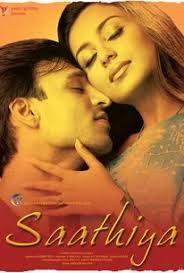
Saathiya movie director Shaad Ali cast her in the role of a medical student who deals with the troubles and discontent of being married at a young age, for the vulnerability that he found in her. She refused the offer at first as she unhappy remaking an accomplished movie, but was convinced to accept the partly by the film’s producer Aditya Chopra. In it, she played love interest of Vivek Oberoi, with whom she did not happy working, saying that his “attitude was bothersome”. Saathiya emerged as a commercial success. The BBC wrote that “Rani plays the character of a middle class girl with great conviction”, and Udita Jhunjhunwala of Mid Day added, “Her expressions and acting are understated in a role that fits her like a glove.”
The year 2003 known the starting of the highest successful time in Rani’s career. She changed Aishwarya Rai to play the lead with Shah Rukh Khan in Aziz Mirza’s romance Chalte Chalte movie. Media reports suggested that Aishwarya was replaced after fight with her then boyfriend Salman Khan on the film’s sets, but Shah Rukh Khan insisted that Rani had been the original choice for the role. Rani believed that the theme of Chalte Chalte, which dealt with misunderstandings between a married couple, was similar to that of Saathiya, and she tried to lend variety to the role by putting “them against a different background”.
She has said that working with Shah Rukh Khan was a learning experience for her, and he would often scold her if she performed inadequately. A commercial success, Box Office India credited it as a career comeback for Rani, and she was rewarded with a second Best Actress nomination at Filmfare. Other Three movie releases of the same year—Chori Chori, Calcutta Mail, and LOC Kargil—made a unsuccessful.
At the 50th Filmfare Awards, Rani won both the Best Actress and Best Supporting Actress awards, becoming the only actress to win both awards in the same year. The Best Supporting Actress win was for Mani Ratnam’s Yuva (2004), a composite film with an multi-starrer cast, about three youngsters from different type of society whose lives intersect by a car accident; Rani playing poor Bengali housewife who is abused by her husband, a local goon played by Abhishek Bachchan. She based her role on her house helps who were abused by their husbands, and observed their body language and speaking style.
Taran Adarsh noted, “Amongst the leading actress, it is Rani Mukerji who is the best of the lot. The role demanded an actress of substance and Rani more than lives up to the expectations.” She won the Best Actress award for her starring role in Kunal Kohli’s Hum Tum (2004), a romantic comedy inspired by When Harry Met Sally (1989), about two strong-willed individuals who meet at different stages of their lives. The film marked her with Saif Ali Khan and proved one of the biggest commercial successes of the year. The Hindu found Rani’s portrayal of Rhea Prakash to be “self assuredly competent” and Tanmaya Kumar Nanda of Rediff.com said, “Rani is her usual collected self, changing into the many hues of her character with the ease of a chameleon”.
She get another Big successful movie when Yash Chopra cast her in his period romantic drama Veer-Zaara (2004). Baseline in the background of India–Pakistan relations, it is about the lead star-crossed lovers, played by Shah Rukh Khan and Preity Zinta. In a part originally written earlier as a man character, Rani played a Pakistani lawyer who tries to help the couple. With a worldwide gross of 940 million rs. Veer-Zaara emerged as the highest-grossing Hindi film of the year, and it was later screened at the Berlin International Film Festival. Derek Elley of Variety took note of the “quietly dignified a performance from Rani”, and the BBC said that she “deserves praise for her acting. To act through your eyes and not using dialogue is an art. Rani for one, has perfected this.” She won the IIFA Award for Best Supporting Actress, and received a nomination in the same category at Filmfare.
In 2005, Outlook magazine published that Rani had established herself as the most successful actress of present-time Hindi cinema. Her first film role that year was with Amitabh Bachchan in Sanjay Leela Bhansali’s Black, a drama about an alcoholic man who dedicates his life to teach a blind and deaf girl how to communicate. Sanjay wrote the part of the blind-deaf girl specifically for Rani, who was initially hesitant to take on the role due to its “challenging” subject matter. Once Sanjay compel his faith in her, she agreed and started studying sign language with professionals at the Helen Keller Institute in Mumbai. Black won several awards including two National Film Awards and 11 Filmfare Awards, and Richard Corliss of TIME featured it as the fifth best film of the year. Empire magazine called Rani’s performance “astonishing”, and Filmfare included her work in their listing of Indian cinema’s “80 Most Iconic performances” and wrote, “Rani has left an indelible mark with this role that usually comes once in a lifetime for most”. She became the only actress to win both the Best Actress and Best Actress – Critics trophies at the Filmfare Awards ceremony.

Same year, Rani received a second Best Actress nomination at Filmfare for her work with Abhishek Bachchan in Bunty Aur Babli, a crime comedy film which known her fifth movie working with Yash Raj Films. She played the lead character of Babli, a con woman. The film was the second highest-grossing film of 2005. Namrata Joshi of Outlook wrote that she “plays to the gallery with ease”. Rani followed it with Amol Palekar’s fantasy film Paheli, reuniting her with Shah Rukh Khan. The film was a box office flop in India but was given a strong international release; it was screened at the Sundance Film Festival and was India’s submission for the Best Foreign Language Film at the 79th Academy Awards. Raja Sen of Rediff.com was impressed by the film as well as Rani’s performance which he called “another perfectly played part”. Rani’s final release of the year was the period film Mangal Pandey: The Rising, about the titular soldier. Director Ketan Mehta initially approached her for a cameo appear, which was later developed into an larger part after she gave her consent to star in the film. Her role was that of Heera, a prostitute who forms the love interest of Pandey (played by Aamir Khan). Derek Elley mentioned that despite a small role, Rani made “the most of her feisty nautch-girl”.
Rani rejected an offer from Mira Nair to star in the English film The Namesake, choosing instead to reteam with Karan Johar in Kabhi Alvida Naa Kehna (2006), a drama about infidelity. Pair once again with Shah Rukh Khan, Abhishek Bachchan and Preity, she played an unhappily married woman who has an affair with a married man. Commenting on the divisive nature of her role, Rani said that it changed her own perception of love and marriage. Kabhi Alvida Naa Kehna was a most awaited release, earning over 1.13 billion rs., to emerge as the highest-grossing Hindi film in overseas to that point.
Rajeev Masand wrote that the “consistently competent Rani Mukherjee takes on the film’s toughest role — a part that may be hard to sympathise with — but she injects it with tenderness and believability”, but Kaveree Bamzai of India Today dismissed it as another one of her roles requiring the “art of weeping copiously and smiling valiantly”. It won Mukerji a third consecutive IIFA Award for Best Actress and a sixth Best Actress nomination at Filmfare. The poorly received melodrama Baabul was her final film appearance of that year.
After unsuccess of Baabul, Yash Raj Films cast Rani in Siddharth Anand’s family drama Ta Ra Rum Pum in the role of a racing driver’s with Saif Ali Khan’ wife and the mother of two child. She was excited to play the part of a mother for the first time, and modelled her character after her own mother. Released in 2007, the film was a financial success, but received mixed reactions from critics. Khalid Mohamed hailed Rani’s performance as “near flawless” but Rajeev Masand thought that neither she nor Khan “are able to make much of an impression because their characters are so unidimensional and boring.” The drama Laaga Chunari Mein Daag from director Pradeep Sarkar starred Rani as a young woman who is forced to moonlight as a prostitute to fend for her family. Her portrayal earned her a seventh Best Actress nomination at Filmfare, but the film had poor critical and Box office wise flop . Shubhra Gupta of The Indian Express noted that Rani was responsible for “holding the film together, even if her part, both as the ingénue and the hooker, doesn’t have freshness”.
Rani once again played a prostitute in Sanjays Saawariya, an adaptation of Fyodor Dostoevsky’s White Nights, opposite Ranbir Kapoor and Sonam Kapoor. She insisted that the consecutive prostitutes she played were different from each other, with the one in Saawariya having “no problem with her profession”. Saawariya was her only release in three years not produced by Yash Raj Films; it was the first Indian film produced by a Hollywood studio, Sony Pictures. The film was a box office flop and met with poor reactions from critics.Rani’s performance, which was described by A. O. Scott of The New York Times as “divine”, earned her a second Filmfare nomination that year, this time for Best Supporting Actress. By the end of 2007, Rani’s popularity had started to down.Rediff.com attributed this to her “monotonous pairing” with the same set of actors; Hindustan Times published that she had become an “exclusive Yash Raj heroine” which hindered other filmmakers from approaching her.
After a series of dramatic parts, Rani sought to play a light-hearted part, which she found in Kunal Kohli’s Thoda Pyaar Thoda Magic (2008), a children’s film about an angel who comes to Earth to help four troubled kids. In a scathing review, Khalid Mohamed criticised Rani’s choice of roles and wrote that “she’s one-dimensional, either darting full blast smiles or tetchy scowls. Her costumes, too, are uneasy-on-the-eyes”. The film had box office failure and further contributed to a decline in Rani’s career prospects. An India Today article spoke of her “running out of luck at the box office” and mentioned her decline in endorsements.
In an attempt to overcome this decline, Rani loose few kgs and underwent a makeover. She continued to worked with Yash Raj Films, taking on a starring role with Shahid Kapoor in the romantic comedy Dil Bole Hadippa! (2009). Rani had high expectations from the film in which she played a cricket-obsessed Punjabi village girl masquerading as a man, and it had its world premiere at the Toronto International Film Festival. The Economic Times critic Gaurav Malani was disappointed with the picture and wrote that Rani “comes up with a spirited performance but her mock sob-whine-whimper do not amuse anymore. Also after a point you dislike visualizing the charming actress as the moustached male player”. The film was Rani’s fourth Box office failure Back to back. When questioned about her recent spate of flops with the Yash Raj Films banner, she defended the collaborations, saying that “I stand by those films regardless of their fate”. Later that year, she featured as a talent judge for the Sony Entertainment Television reality show Dance Premier League. She agreed to appear on television to gain visibility during a low phase in her film career.
Aniruddha Guha of Daily News and Analysis described Rani’s performance in the 2011 film No One Killed Jessica as “one of her best performances till date”. Working opposite Vidya Balan, the film was Rani’s first commercial success since Ta Ra Rum Pum, and was especially marked for being so in the absence of a male star. The film was based on the Jessica Lal murder case, and role of Rani as a fictionalised crude journalist who is deeply involved with the case. She has described how different the role was from the ones she had previously played, saying, “I actually had to play a man!” Certain critics, however, were critical of her performance, including Anupama Chopra of NDTV, who called her role, “the fatal, false note in No One Killed Jessica,” arguing that “the character is written superficially and Rani’s portrayal of her is equally banal. It’s all about externals. She argues a lot and proudly labels herself a bitch but her hair stays perfectly in place and in the end, she even gets to do a super-hero-like slow motion walk.” Even so, the role earned her a third Best Supporting Actress trophy at Filmfare.
Rani’s next main role in Sachin Kundalkar’s Aiyyaa (2012), a comedy of manners working malayalam movie star Prithviraj. She played a woman with a heightened sense of smell who develops a one-sided attraction towards Prithiviraj’s character. Critically and commercially failures, Rediff.com criticised her decision to star in the film, writing that she “gets no support from the way her character is written”. Greater success came for her portrayal of Roshni Shekhawat, a mother grieving the death of her child, in Reema Kagti’s psychological thriller Talaash: The Answer Lies Within. Opposite Aamir Khan and Kareena Kapoor, the film had worldwide earnings of over 1.74 billion rs. to emerge as the year’s eighth highest-grossing Hindi film. Ronnie Schieb of Variety described Rani as “vivid in a quietly sympathetic role”, and she received a Best Supporting Actress nomination at Filmfare.
In 2013, Rani starred in the anthology film Bombay Talkies consisting of four short films. She was part of the segment helmed by Karan, in which she played a journalist who discovers that her husband (played by Randeep Hooda) is gay. The film was screened at the 2013 Cannes Film Festival. Despite poor box office returns, Bombay Talkies met with critical acclaim, particularly for Johar’s segment; Tushar Joshi of Daily News and Analysis praised the subtlety in Rani’s performance. The next year, Rani starred in Pradeep Sarkar’s crime thriller Mardaani, in which she played the title role of Shivani Shivaji Roy, a Marathi policewoman involved in a kidnapping case that leads her to uncover secrets of human trafficking. She took on the role to show girls “how they need to protect themselves”.
In preparation, she interacted with senior officials of Mumbai Police, and learned the Israeli self-defence technique of Krav Maga. Rajeev Masand credited Rani for “investing Shivani with both physical strength and emotional courage, she gives us a hero that’s hard not to root for”, and Anupama Chopra commended her for providing her character with both “steely resolve” and “emotional depth”. The film was a commercial success and gained praise for rani’s another Best Actress nomination at Filmfare.
After the birth of her child, Rani took a four-year break to focus on her daughter and was persuaded by her husband, Aditya Chopra, to return to acting. She was keen to work on a project that would accommodate her parental commitments and found it in the comedy-drama Hichki (2018). Inspired by Brad Cohen’s autobiography Front of the Class, the film tells the story of Naina Mathur, an aspiring teacher suffering from Tourette syndrome who must prove herself by educating underprivileged children. Rani interacted with Cohen and she trained to make her character’s motor and vocal tics appear spontaneous and not rehearsed. In a mixed review, Anna M. M. Vetticad of Firstpost wrote that she “lifts Hichki every time she is on the scene, bringing empathy and charm to Naina’s character without at any moment soliciting the audience’s pity.” It earned 2.33 billion rs., worldwide, a majority of which came from the Chinese box office, and its success motivate Rani to express an interest in working more frequently in the future. She gained another Best Actress nomination at Filmfare.
Rani reprised her role as Shivani Shivaji Roy in Mardaani 2 (2019), a sequel to Mardaani, directed by Gopi Puthran, who wrote the first film. In it, Roy faces off against a young rapist. Shubhra Gupta wrote that Rani is “in command right through as she works to a script which pushes her to the fore at every given chance”, but Rahul Desai of Film Companion criticised her for overplaying Roy “as more of a Dhoom franchise character than a complex cop”.
Mardaani 2 performed well at the box office and gained her another nomination for the Filmfare Award for Best Actress. The commercial success of three consecutive films led Filmfare to credit Rani for breaking “the stereotype that actresses have battled for generations that post marriage and kids, an actress’ career gets over in Bollywood”.
Rani’s Upcoming next movie is reprise her role as Babli in the comedy sequel Bunty Aur Babli 2, co-starring Saif Ali Khan and Siddhant Chaturvedi.
Personal life and Other work :
Rani Mukerji is publicly reserved about her personal life. She limits her interactions with the media and is sometimes labelled a recluse; she said in a 2011 interview, “Today actors have become more open with the media. But this has posed a problem for actors like me because if I don’t do that, then I end up being called reclusive. So now I have changed myself and am easily approachable.” Rani has collaborated frequently and maintained a close friendship with actors Shah Rukh Khan and Aamir Khan, and filmmaker Karan Johar. The nature of Rani’s relationship with producer Aditya Chopra was the topic of intense tabloid reporting in India, though she refused to publicly talk about it. On 21 April 2014, she married Aditya at a private ceremony in Italy. The Next year, she gave birth to their daughter Adira. Rani has said that she believes in maintaining a work-life balance after motherhood, adding that “it is extremely important for a mother to have a career and use her time constructively”.
During her acting career, She is also involved with social causes and is voice about issues faced by women and children. Rani was appointed as an ambassador by Procter & Gamble and the NGO Child Rights and You for their joint venture, Shiksha, to endorse the cause of children’s education. In 2011 she set up a Stroke Treatment Fund, in association with the Indian Stroke Association, to pay for the treatment of financially deprived stroke-affected patients. She has made public appearances to support other charities and causes. In March 2004, she visited the Indian army unit in Pokhran, Rajasthan to interact with the jawan troops, for the NDTV reality show Jai Jawan. A 10 years later, in August 2014, she visited the jawans again at Baramulla. In February 2005, Rani and several other Bollywood actors participated in the 2005 HELP! Telethon Concert to raise money for the victims of the 2004 Indian Ocean earthquake. In March 2006, Rani celebrated her birthday with the physically challenged children of the Helen Keller Institute; she had previously worked with them while preparing for her role in Black.
In November 2010, she was part of a fund raising auction for the “Because I am a Girl” charity campaign. In 2014, Rani attended a charity dinner on child abuse in London, where she was felicitated by Prince Charles for raising awareness on the issue through her work in Mardaani.
Rani Mukerji has participated in several concert tours and televised award ceremonies. Her first concert tour, “Magnificent Five”, was in 1999 in which she performed with actors Aamir Khan, Aishwarya Rai, Akshaye Khanna and Twinkle Khanna. The “Temptations 2004” concert had Rani perform with Shah Rukh Khan, Saif Ali Khan, Preity Zinta, Arjun Rampal and Priyanka Chopra in 19 stage shows worldwide.The next year, she participated in the “Temptations 2005” concert in New Delhi with Shah Rukh Khan, Fardeen Khan, Ameesha Patel and Malaika Arora Khan; the show was organised to help raise funds for the National Centre For Promotion of Employment for Disabled People (NCPEDP).
In 2010, Rani performed at a concert in the Army Stadium of Dhaka, Bangladesh with several Bollywood actors including Shah Rukh Khan, Rampal and Ishaa Koppikar. For the “Temptations Reloaded” concert of 2012 in Jakarta, Rani performed with Shah Rukh Khan, Zinta and Bipasha Basu, for the 2013 concert of the same name in Auckland, she performed alongside Shah Rukh Khan, Madhuri Dixit and Jacqueline Fernandez, and in 2014 she performed in Malaysia co-star Shah Rukh Khan, Dixit, Yo Yo Honey Singh and Arijit Singh.
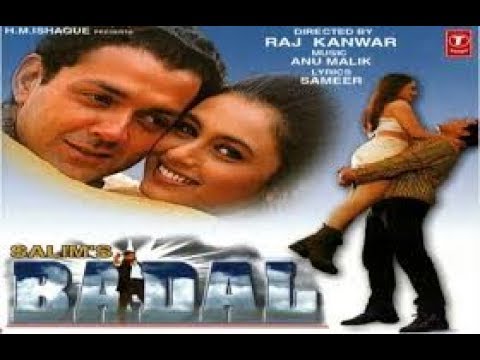
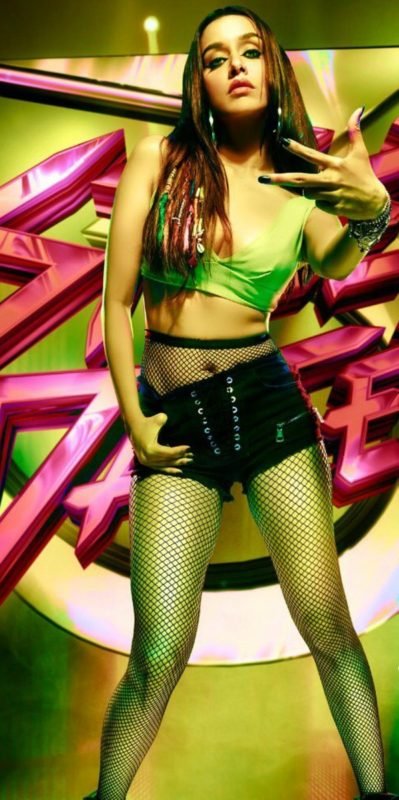
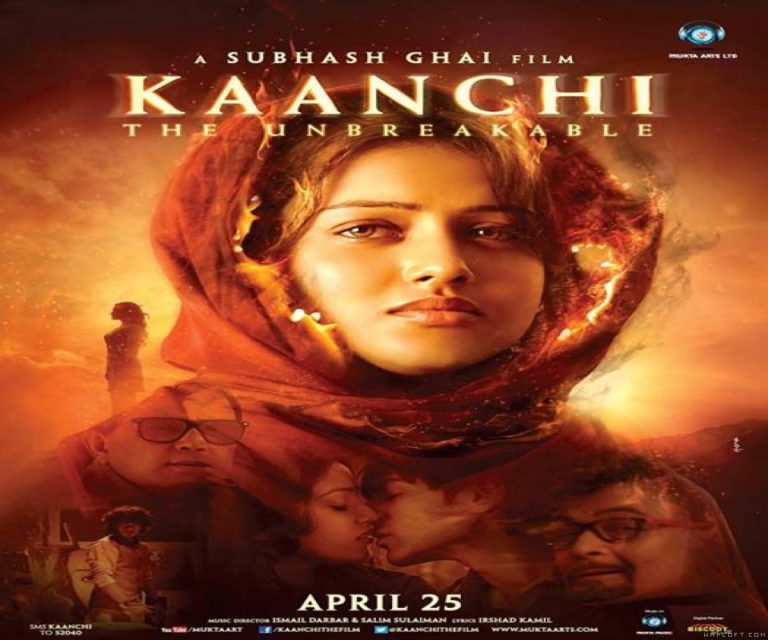
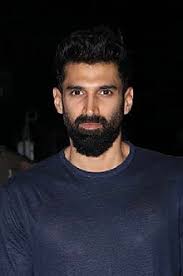
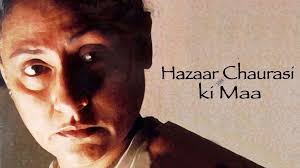
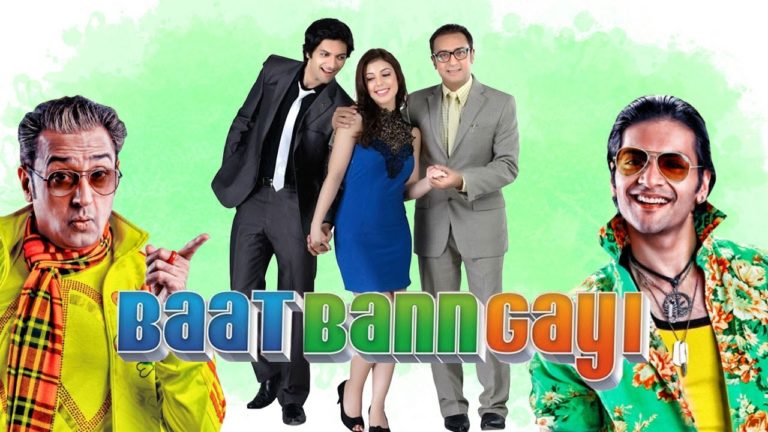
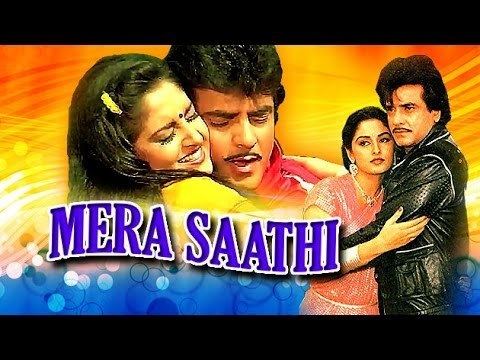
One Comment